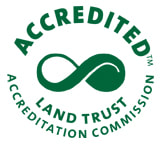|
Little Forks Conservancy is pleased to announce the completion of two conservation projects at the end of 2021. This takes our total of protected lands over 4,000 acres. We are grateful for the landowners that helped make this possible. A 42-acre property in Bay County, just 10 minutes from Downtown Midland was donated by Tom and Barbara VanderKelen to Little Forks and will become a natural area open to the public. This property is already well-loved by the local community with social trails throughout and fishing on the three man-made ponds on the property.
For over 15 years we have been working with landowners in the Cedar River Watershed to protect and improve this amazing resource. Stay tuned for more details on these exciting new conservation projects.
Head over to the Land Protection page to learn more about conservation options in your area.
2 Comments
The Little Forks Conservancy is pleased to announce that we are applying for a renewal of accreditation. A public comment period is now open.
The land trust accreditation program recognizes land conservation organizations that meet national quality standards for protecting important natural places and working lands forever. The Land Trust Accreditation Commission, an independent program of the Land Trust Alliance, conducts an extensive review of each applicant’s policies and programs. The Commission invites public input and accepts signed, written comments on pending applications. Comments must relate to how Little Forks complies with national quality standards. These standards address the ethical and technical operation of a land trust. For the full list of standards see https://www.landtrustaccreditation.org/help-and-resources/indicator-elements. To learn more about the accreditation program and to submit a comment, visit www.landtrustaccreditation.org, or email your comment to [email protected]. Comments may also be faxed or mailed to the Land Trust Accreditation Commission, Attn: Public Comments: (fax) 518-587-3183; (mail) 36 Phila Street, Suite 2, Saratoga Springs, NY 12866. Comments on Little Forks’ application will be most useful by March 19th. As my service ends, I thought it would be a good idea to reflect on the year and all that I have done as a Huron Pines AmeriCorps member serving at the Little Forks Conservancy in 2020. I never expected this year to turn out the way it did, as I am sure many others did not either. A global pandemic and a 500-year flood in the same year? I definitely did not sign up for that. Serving remotely for many months was challenging. When I first started, I was expecting to be spending most of my service outside and working with other people. Instead, I spent a good portion of my service on my couch and became very familiar with using Zoom. However, even with all of the challenges that I faced – I was still able to get things done, take part in lots of exciting opportunities, and learn so much. Throughout my service, I was tasked with recording the visitor data from our preserves. The conservancy tries to keep track of how many visitors they get so that they can better understand how people are utilizing their properties. Most of my service occurred as the COVID-19 pandemic was taking place. We began to see increases in the number of visitors that were using the preserves. I decided to analyze the data and compare it to previous data from 2019. All of the preserves saw greater numbers of visitors in 2020. It was interesting to view just how much people were going outside during a time when they were not able to do much else. Being out in nature is so important for our physical, mental, and emotional health. Since many of our in-person events were canceled this year, we had to get creative and come up with some virtual alternatives. I became very familiar with using different types of software and programs to do outreach. I assisted with our virtual Garlic Mustard Pull where we encouraged the public to go out with their families to remove the invasive species.
Later in the season, once we were able to start working on our preserves and with volunteers, we held some work days doing things like trail building, invasive species removal, habitat restoration, and flood remediation. The 500-year flood damaged three of the conservancy’s preserves along the Tittabawassee river and their office. Forestview Natural Area in particular was affected. Boardwalks were shifted, the floodwaters caused the bridge to move off of the creek (getting damaged in the process), and piles of debris were deposited all over the land along the river. I helped plan a Huron Pines AmeriCorps service event at Forestview during which we spent a day rebuilding the bridge and removing flood debris from the property. During some of my final weeks of service I took the lead on a scout project at Riverview Natural Area where were thinned some trees and removed invasive species. Having too many trees in one area can lead to overcrowding issues where the trees will compete with each other for resources. By removing some, we can establish healthier forests and increase growth in those that were left. The cut trees were used to create piles of brush that will serve as habitat for critters in the area. Conservation easements are agreements with landowners that protect their properties and resources. Little Forks conservancy has over thirty easements and each one must be monitored annually. Over the past few months I learned about easements, various conservation practices, and communicating with landowners. My site supervisor, Elan, taught me how to complete a monitoring visit and create a monitoring report after. I spent many days hiking around some gorgeous properties in Mid-Michigan. I have seen farm fields, wetlands, forests, rivers and lakes. Getting to see firsthand how the conservancy has been able to protect land, resources, and habitats in the surrounding areas was amazing.
Not too far from the Chippewa River is a seven-acre property that was once part of a small family farm in Homer Township. This past summer, the Little Forks Conservancy accepted the donation of this property in honor of the family that owned it for generations. The decision to donate the property was an easy one for John Anderson, as he and his late wife, Ursula, had discussed wanting to see it preserved for the education and enjoyment for the people of the Midland area. Ursula’s family had owned and lived near the property for years and to commemorate that legacy, John contacted Little Forks to preserve the family’s legacy.
The newly protected Anderson property will become the conservancy’s seventh nature preserve. Management objectives are being developed, but options include an outdoor learning space for Little Forks’ Nature/Nurture program as well as a small park area for the community. The property has been routinely mowed for hay, keeping invasive species just to the edges.
“This allows us to have a blank slate to work from and create something truly enjoyable for the community,” commented Sara Huetteman, preserve and volunteer manager. The Conservancy has decided to place approximately 100 acres of the farmland at Riverview Natural Area for sale under a conservation easement. This farmland has been leased to local farmers in previous years, by selling this land with a conservation easement allows us to continue to protect the natural and agricultural heritage of the land while focusing our resources on the rest of Riverview, the other four preserves open to the public, as well as new projects.
We are looking for conservation-minded potential buyers to participate in a closed bid process. If you are interested in obtaining a bid packet, please click here – Farmland Sale Bid Packet. Bids are due by noon on January 9, 2019. If you have any questions, please call Elan or Greg at our office at 989-835-4886 Imagine not being able to stand on the banks of the Tittabawassee River to watch a bald eagle swoop by — or not having the chance to cross the path of a turtle meandering along as you explore a trail. Many people in our community can’t enjoy those sights at Little Forks Conservancy’s Preserves because they aren’t physically able to hike the grass or trails. “Visitors who enjoy Midland County Parks’ new accessible parking area and shelter on the boundary of the Averill Preserve may not be able to experience this beautiful preserve just steps away,” said Board President Jon DeGroot. Thanks to donations from local foundations and members like you, Little Forks Conservancy has changed that. At the Averill Preserve, we've added a hard surface trail to enable people with wheelchairs or families with strollers to easily explore the beautiful, historic preserve. The All Access Path leads to a open area with a Nature Play Area for children to explore nature in a safe place. As part of this project:
Jon added, “We believe that this project will add to County Parks’ investment and create an inviting experience for all visitors to these properties.” Once the largest timber banking grounds in the world, the property has been restored over many years to its current state. “Of all our properties, the Averill Preserve has been the most impacted by previous uses of the land,” said Elan Lipschitz, director of land conservation. “I’m very excited about some of the opportunities for habitat restoration we have planned along the new trail. In the late fall of 2017, what was once George and Sue Lane’s property in Gladwin County was donated to The Little Forks Conservancy. This was a collaboration between the Conservancy, the Leon P. Martuch Chapter of Trout Unlimited, and Chippewa Watershed Conservancy. George was a longtime Conservancy supporter, a former board member and a conservation easement donor.
The Lane property is 270 acres with three quarters of a mile of frontage on the North Branch of the Cedar River. The property includes important forestland habitat, open grasslands, and scenic views of the surrounding area. George and Sue’s stewardship ethic led to dramatic improvements to the property, specifically regarding wildlife habitat, removing sediment from the river and controlling erosion along the river. The North Branch of the Cedar River is one of a limited number of cold-water trout streams located within the northern reaches of the Saginaw Bay Watershed. The Lane family initially protected the property with a conservation easement and now the property will be a nature preserve to not only benefit the natural resources of the land, but also the local community. With George and Sue’s vision for their land in mind and with partners like Trout Unlimited and Chippewa Watershed Conservancy alongside of us, we cannot wait to see what projects we can accomplish on the first Little Forks preserve outside of Midland county, a strategic goal of the last two strategic plans for the organization. The riparian corridor will be managed by the Leon P. Martuch Chapter of Trout Unlimited with the Conservancy managing the remainder of the property and Chippewa Watershed Conservancy holding the conservation easements. In 2018, we began building trails, installed boundary markers, removed an old house and installed a parking area. The property can be accessed from a parking area located on Shearer Road approximately 1/3 mile south of M-18. “The George and Sue Lane Preserve has a lot of potential; we are starting with a mile of trail but hope to expand in the years to come” said Sara Huetteman, Little Forks’ Stewardship Coordinator. |
Archives
April 2024
Categories
All
|
© 2022 LITTLE FORKS CONSERVANCY. ALL RIGHTS RESERVED.
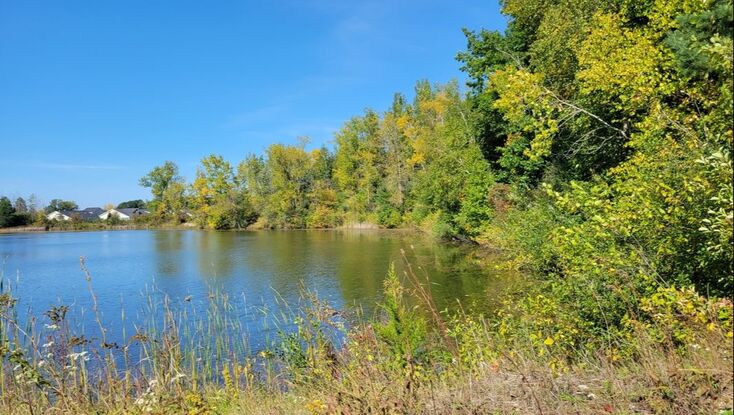
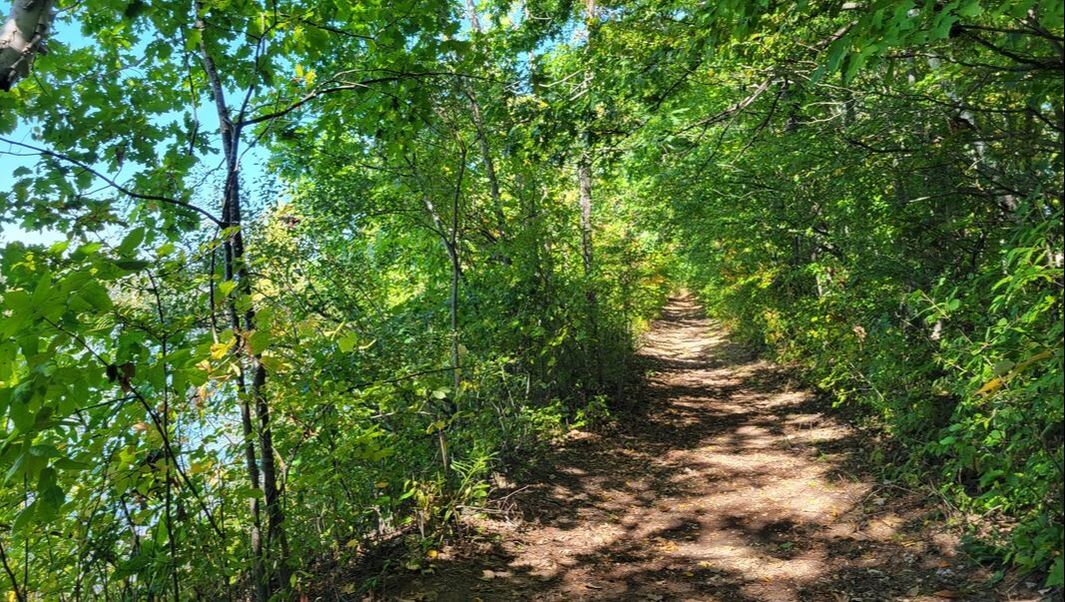
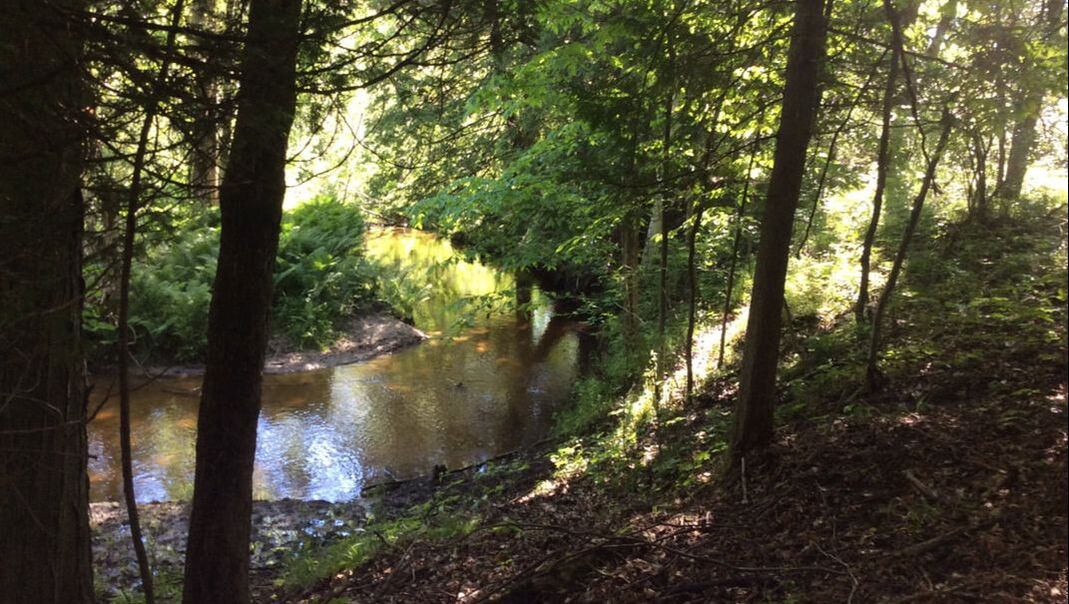
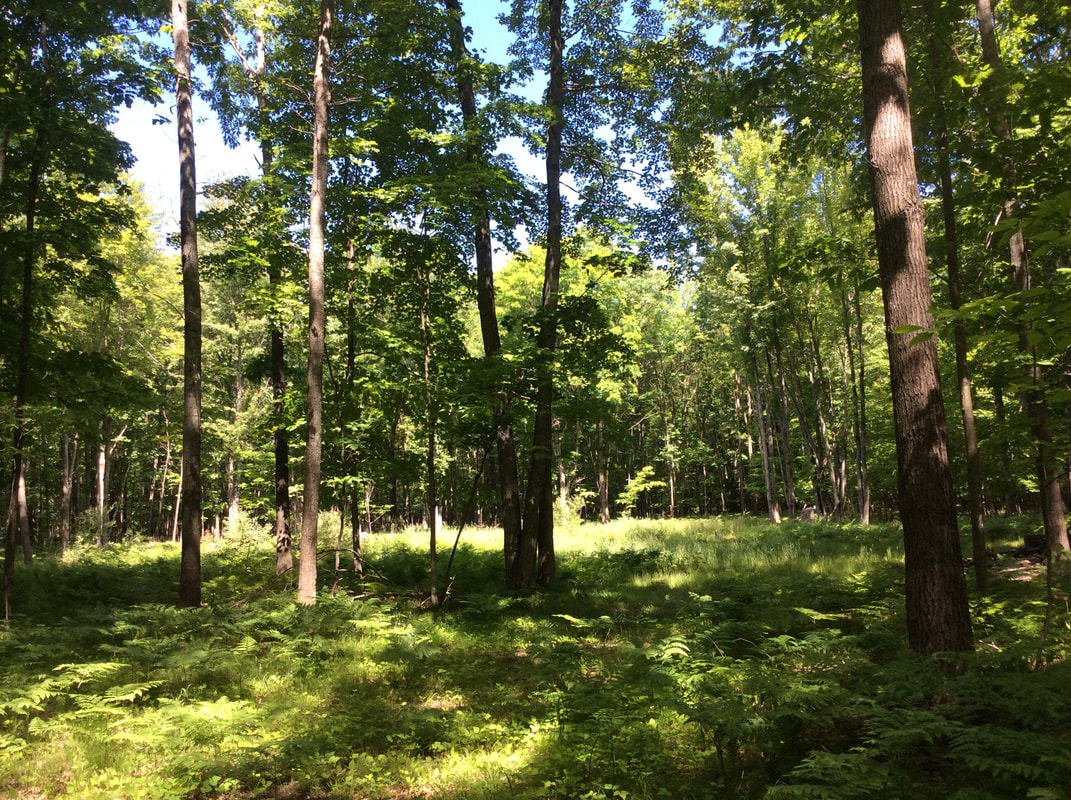
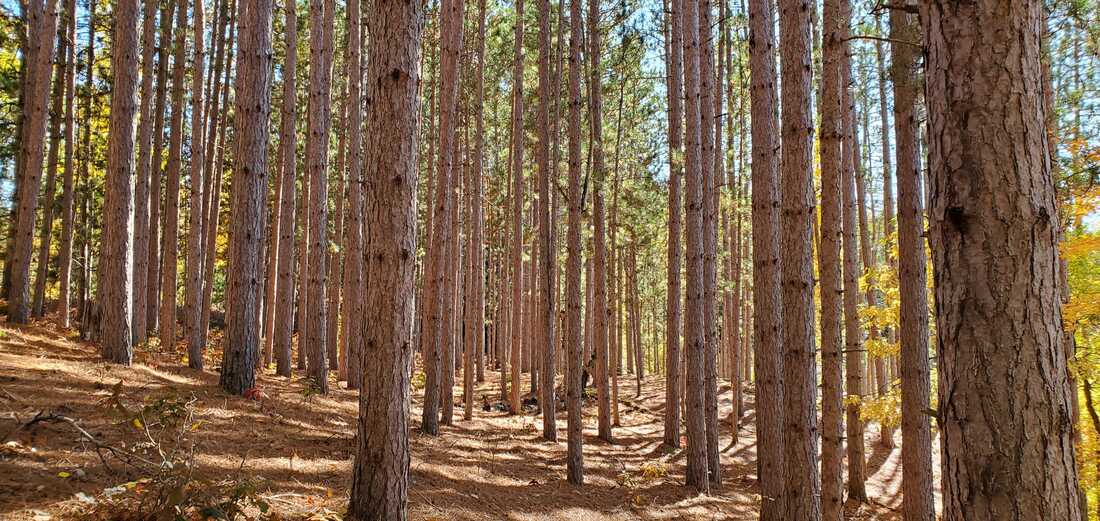
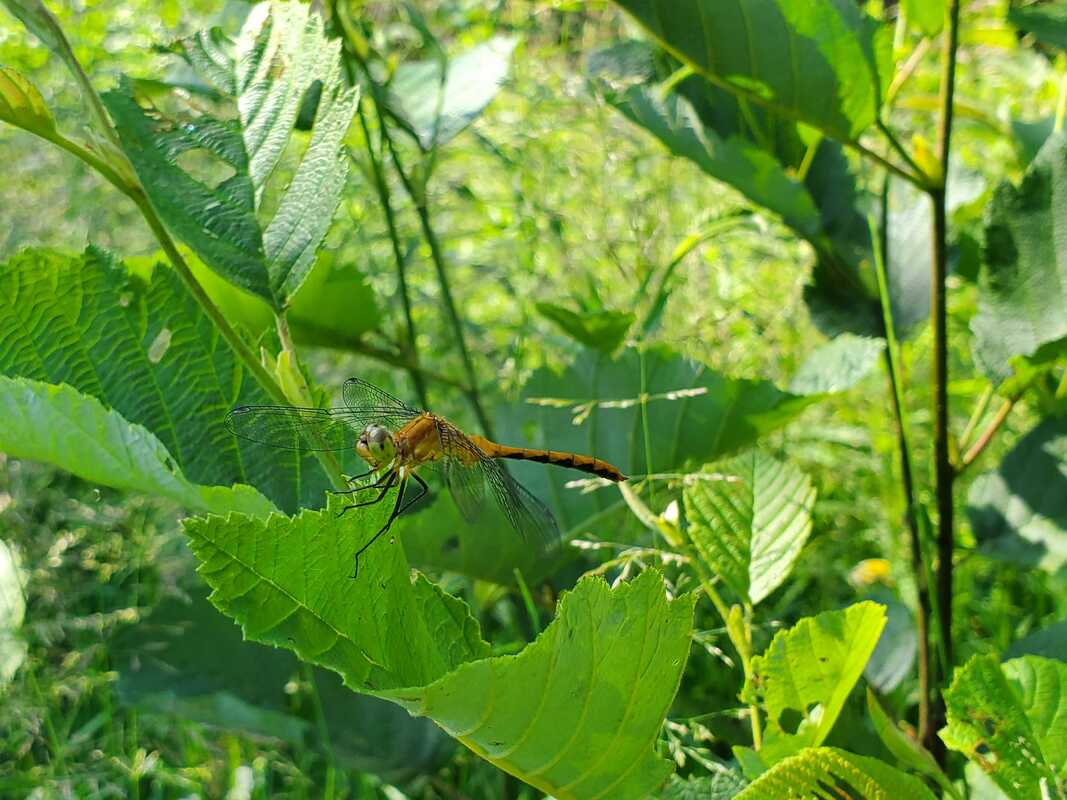
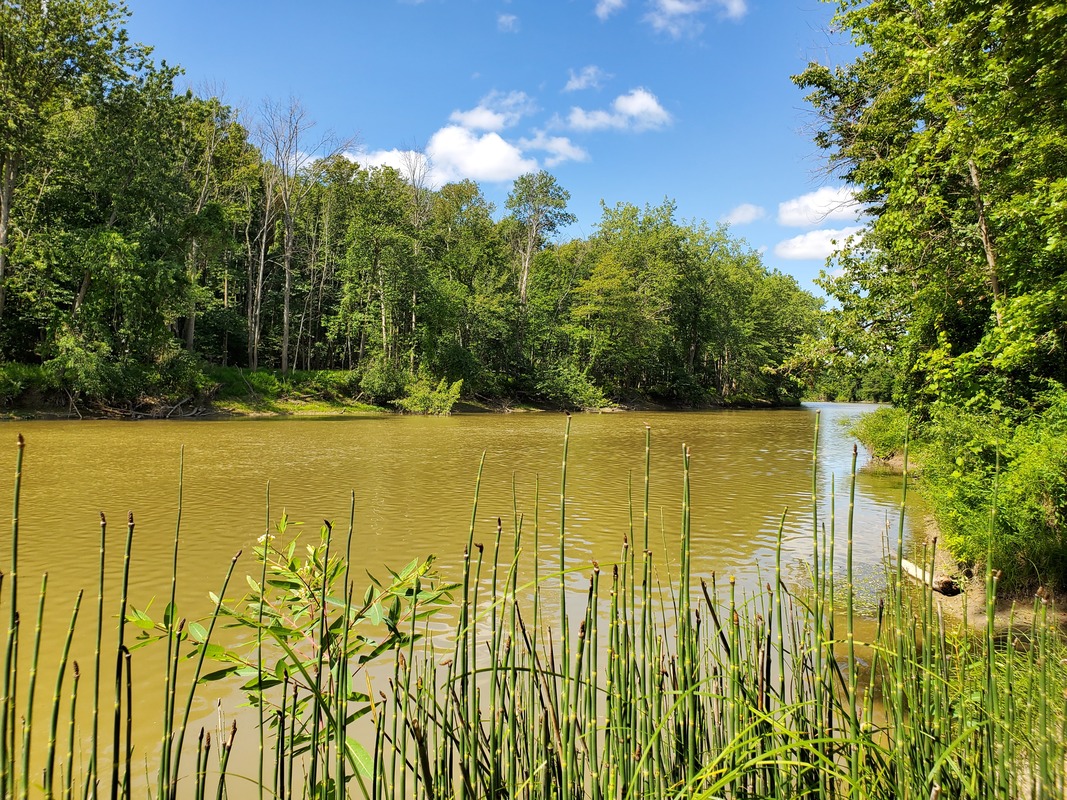
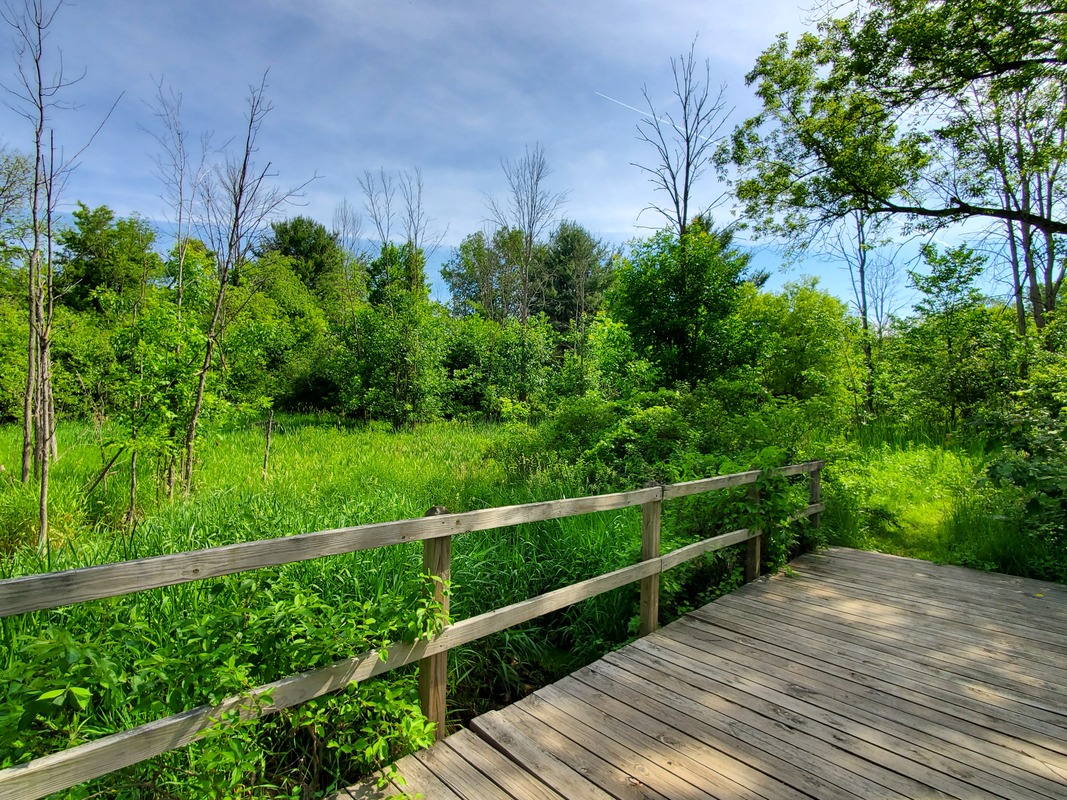
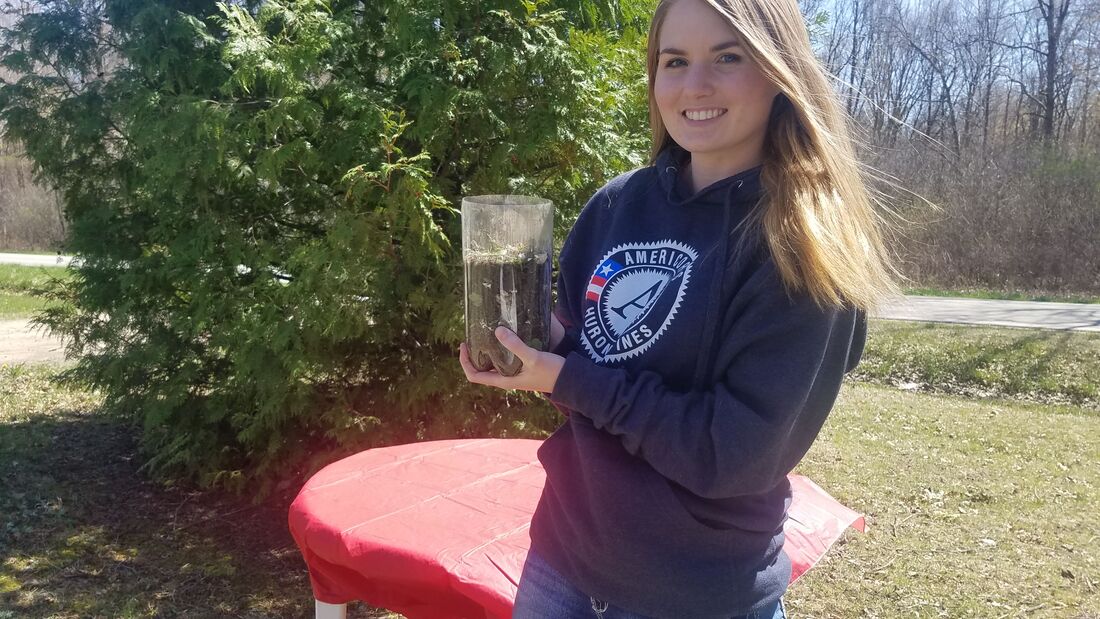
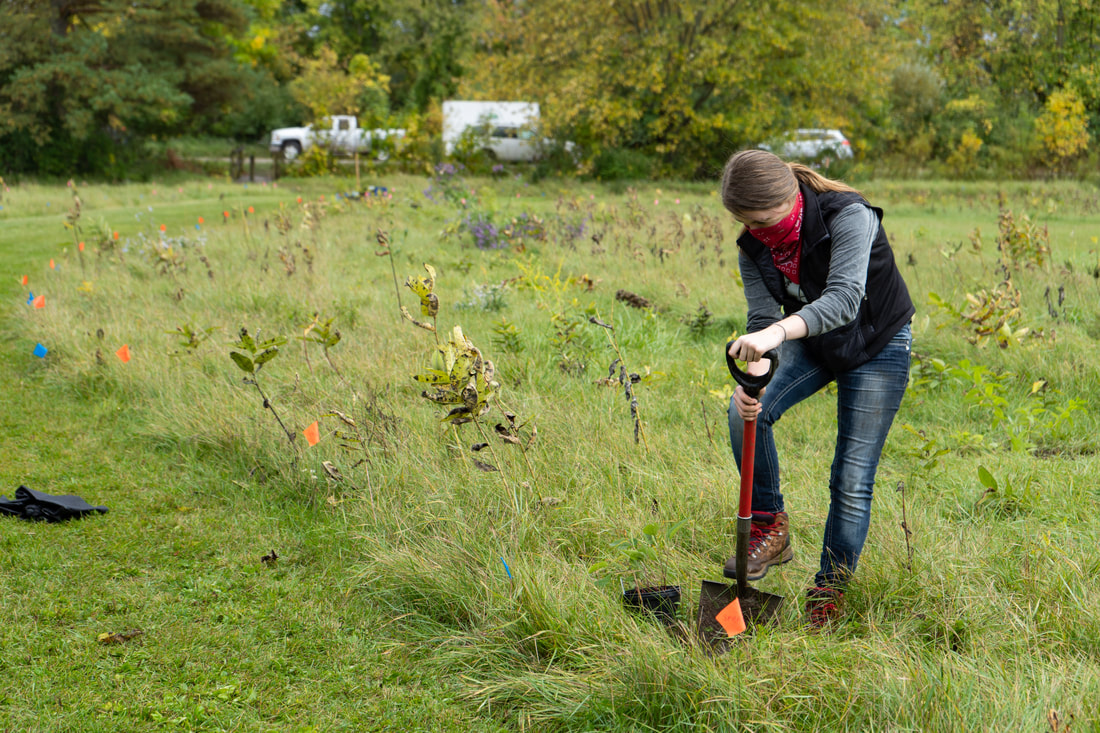
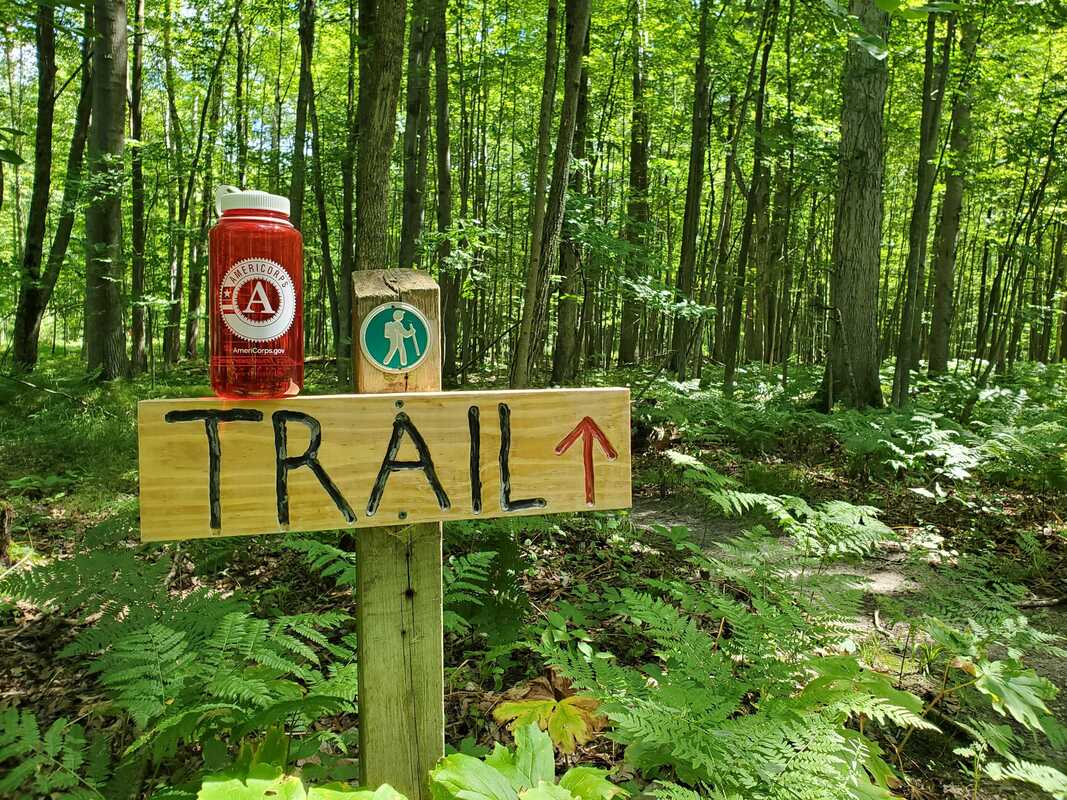
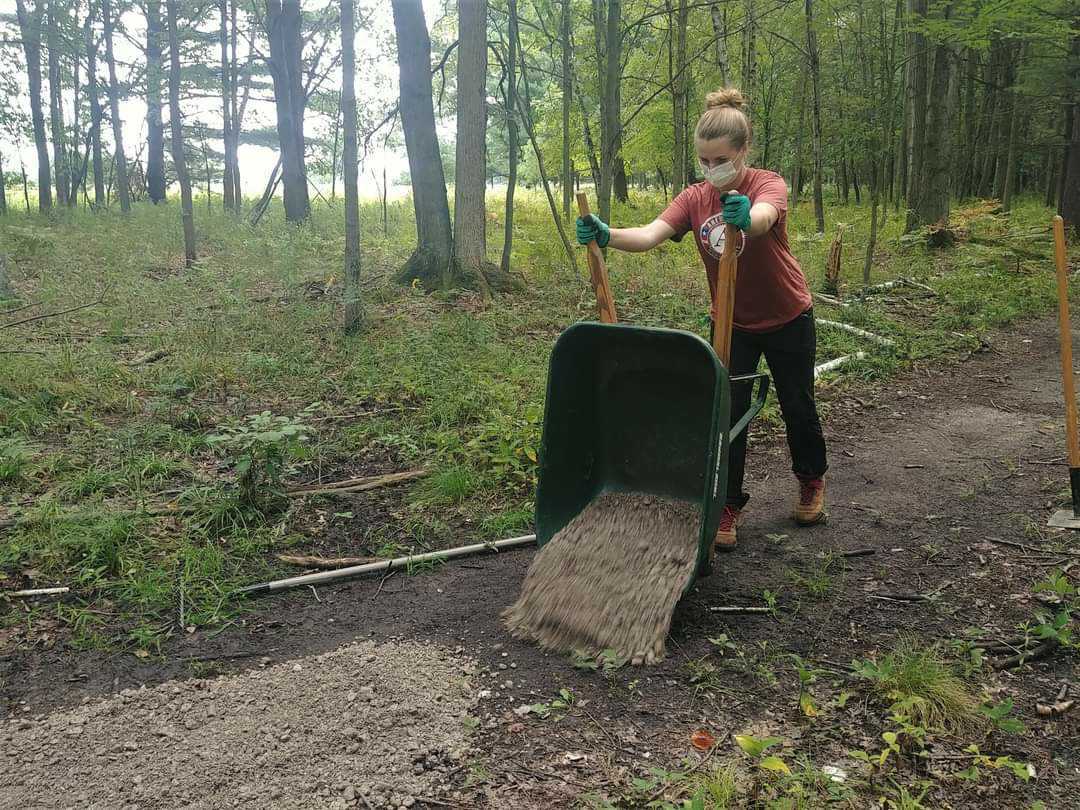
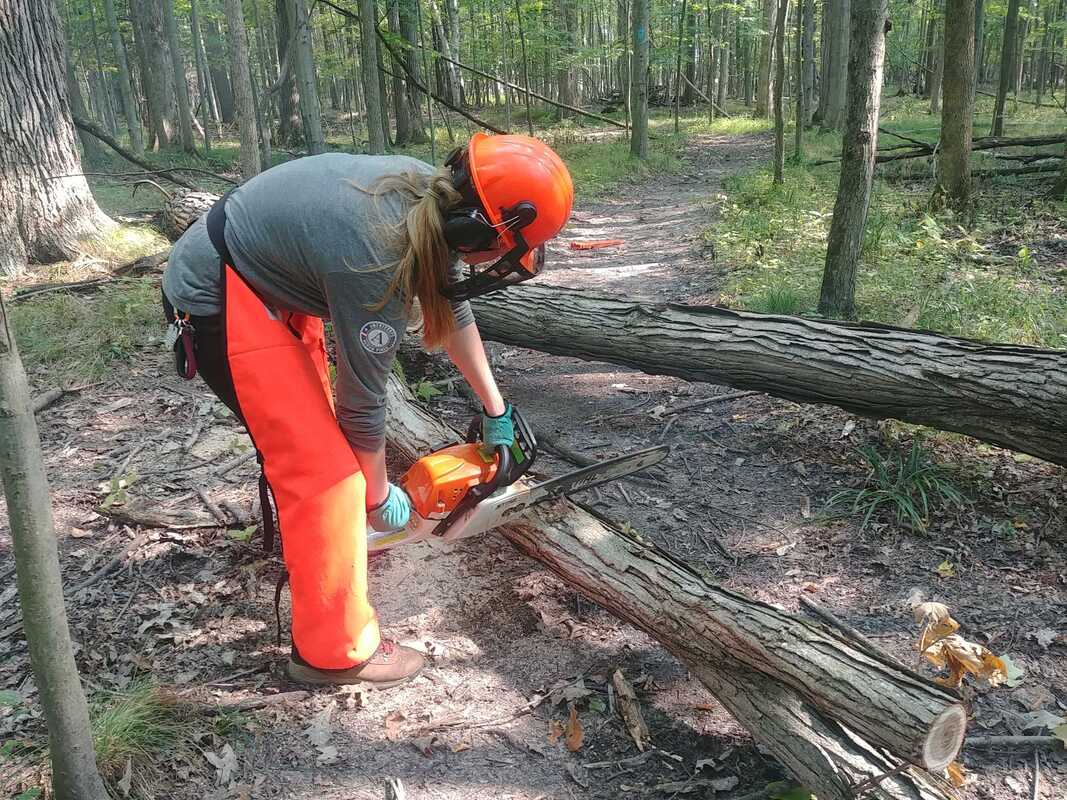
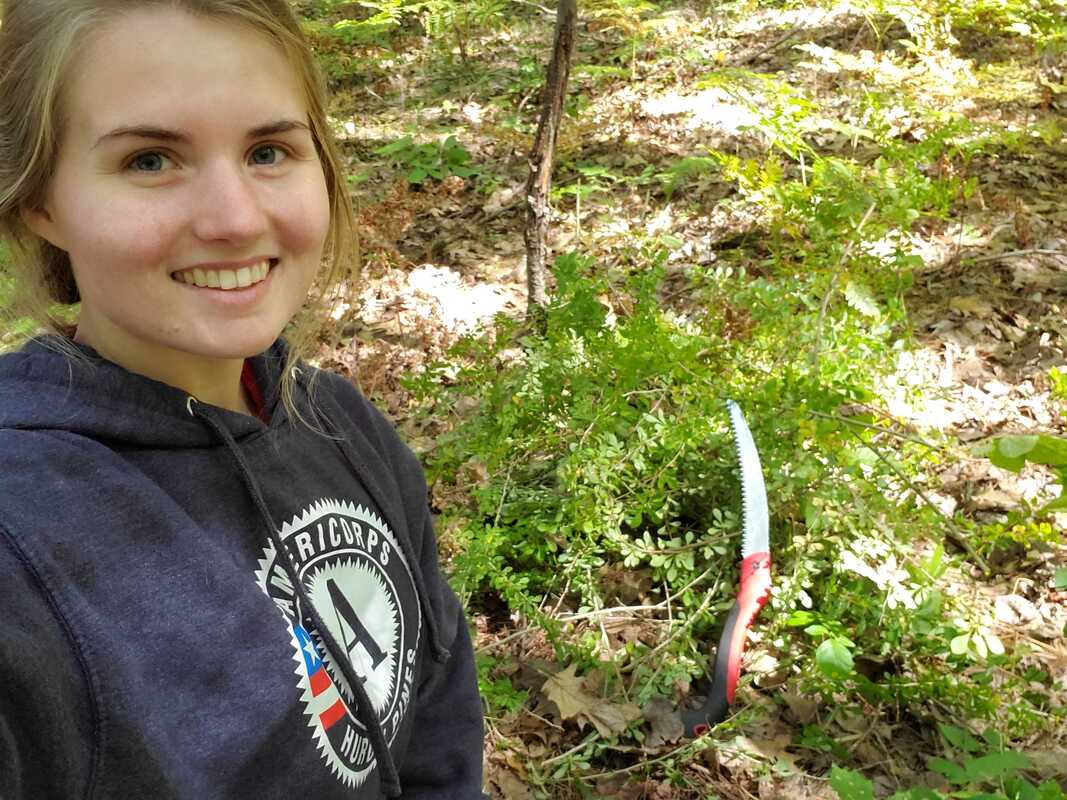

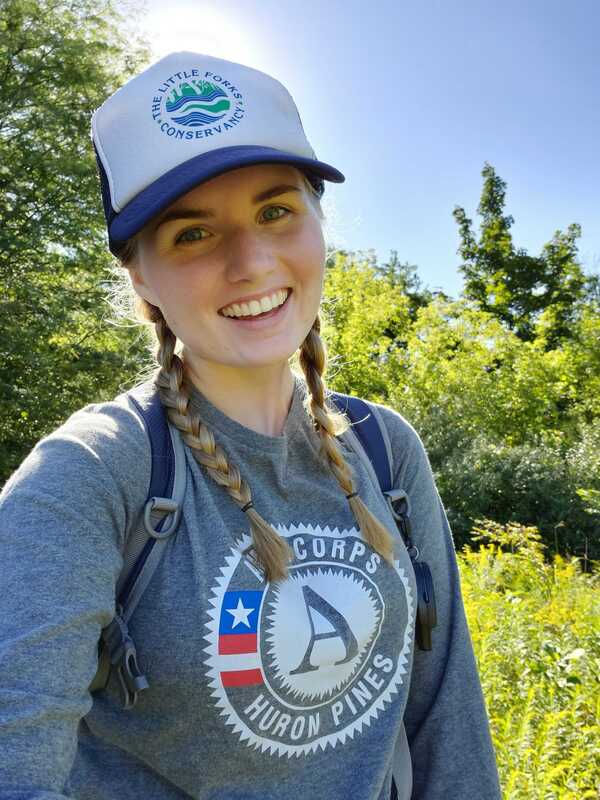
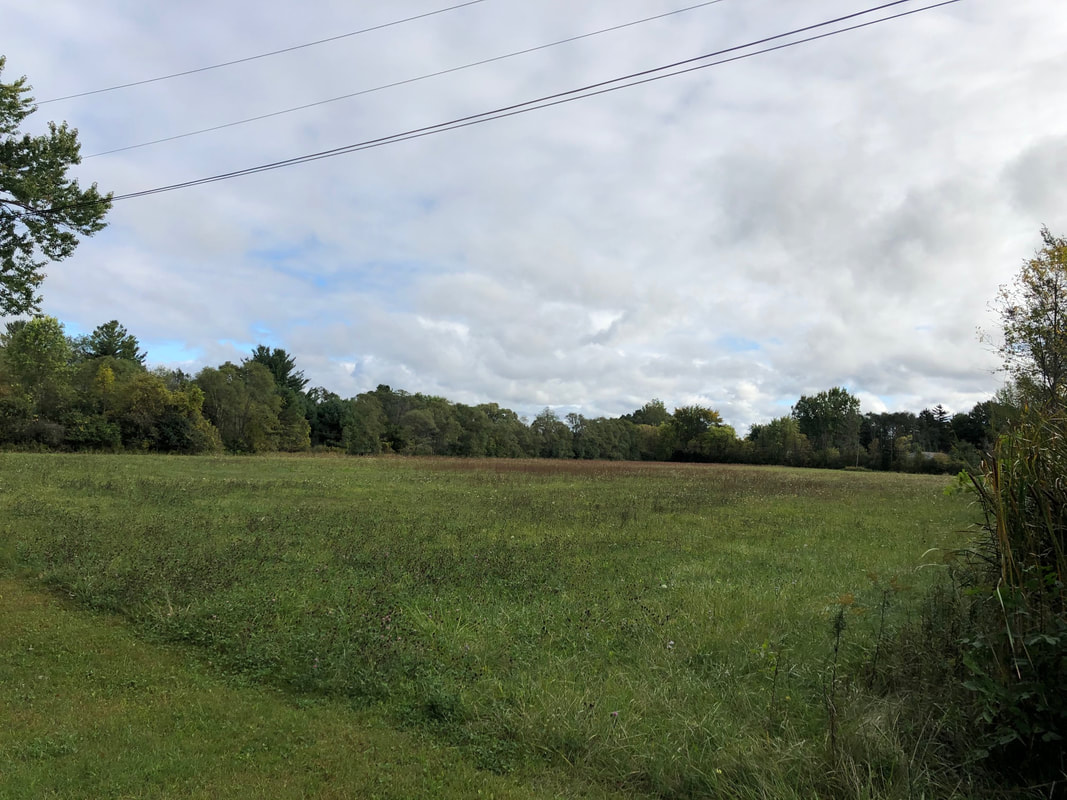
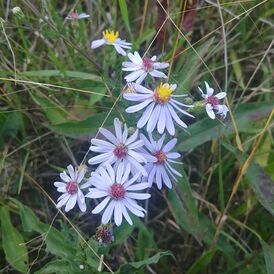
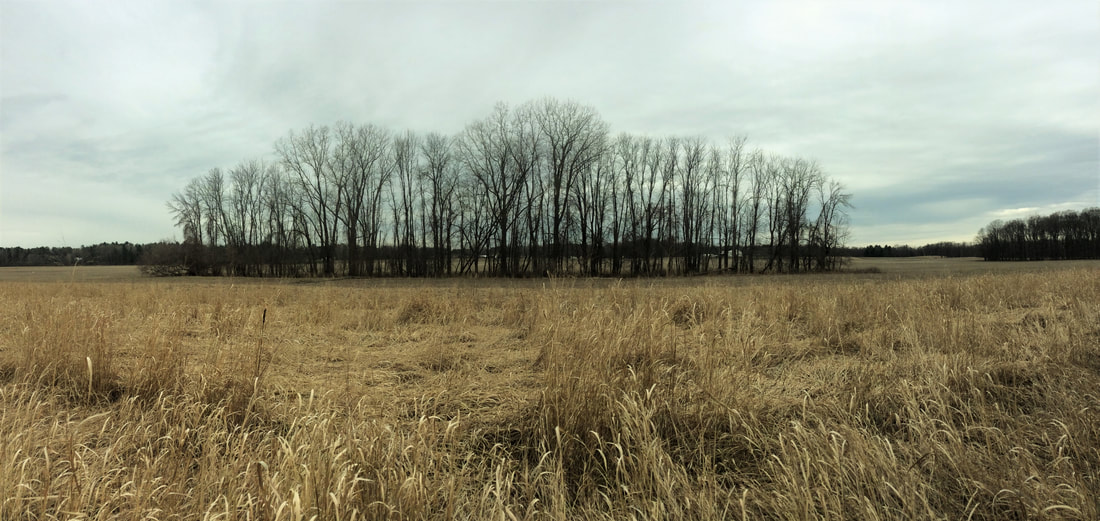
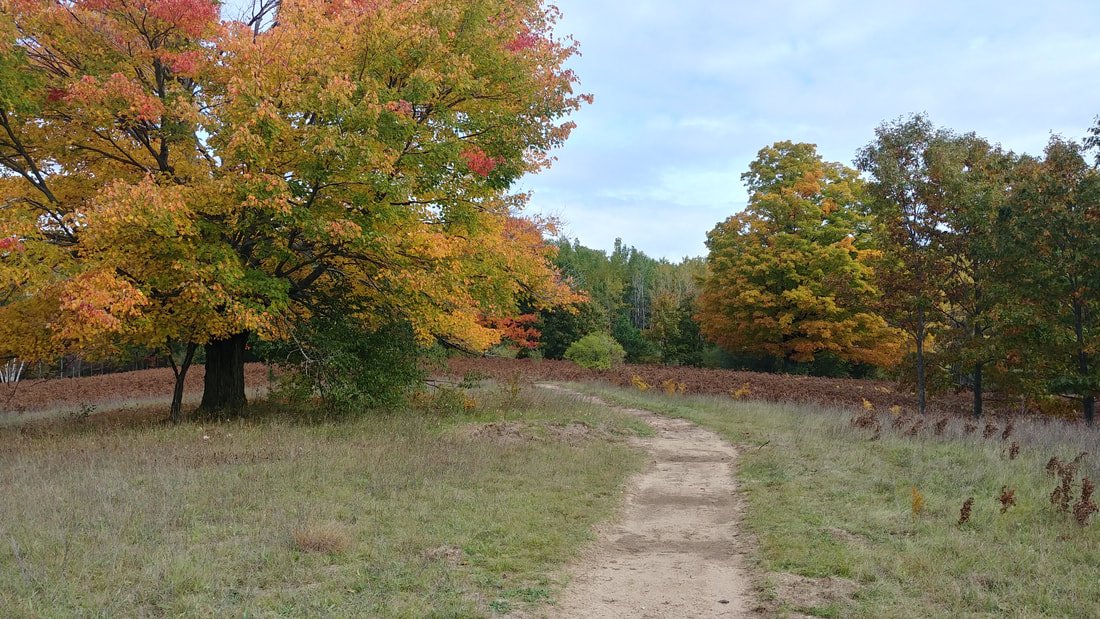
 RSS Feed
RSS Feed
